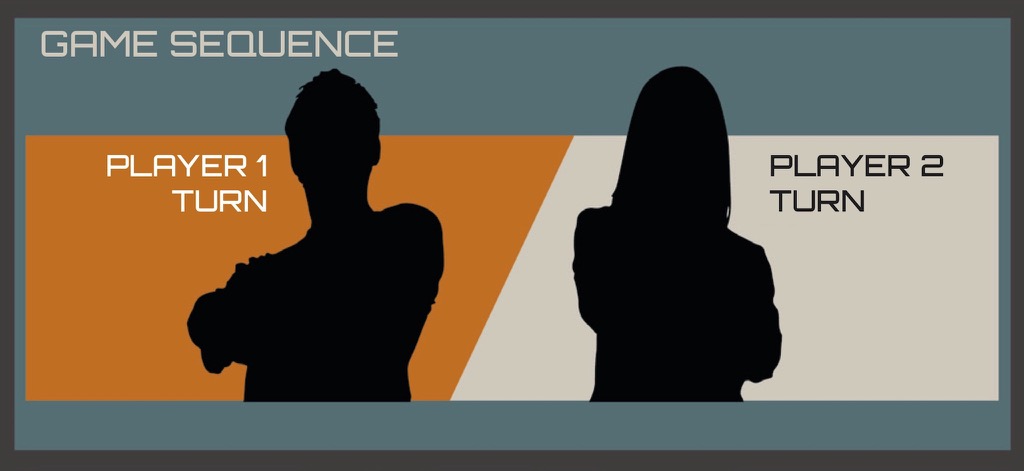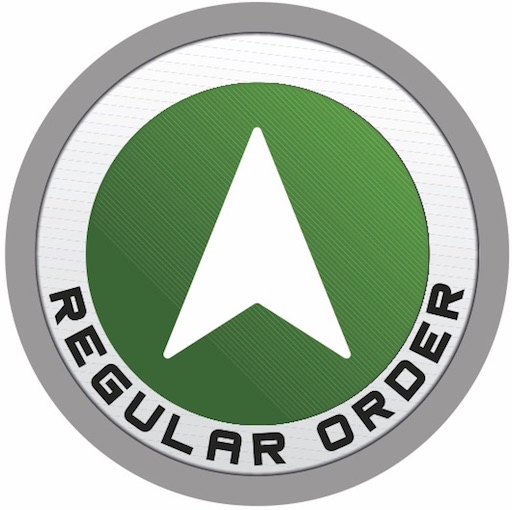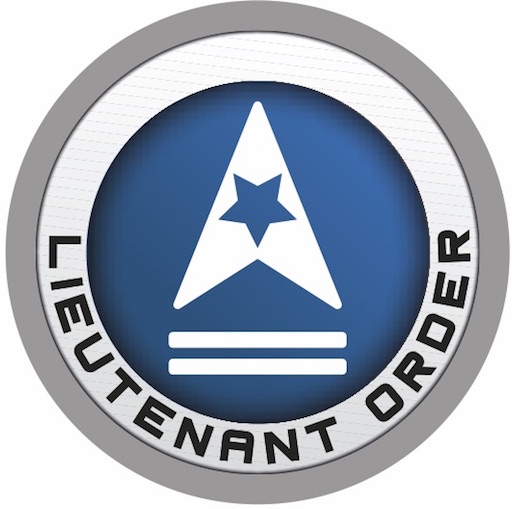NOTICE: Infinity N5.2 and N5 FAQ 0.0.0
The wiki has been updated to include the N5.2 changes and the v0.0.0 FAQ.
List of wiki pages updated in N5.2.
Difference between revisions of "Game Sequence"
m (→Orders Phase) |
m |
||
| (4 intermediate revisions by the same user not shown) | |||
| Line 1: | Line 1: | ||
| − | {{ | + | {{n5-section-basic-rules}} |
== Game Round == | == Game Round == | ||
| − | Infinity | + | Infinity games are divided into Game Rounds, or '''Rounds''', during which both players have the chance to take an active role. This means each Round is divided into two Player Turns, or '''Turns''', one for each player. |
| − | At the start of a | + | At the start of a Round, a new Player Turn begins, following the turn order determined during the [[Initiative_and_Deployment | Initiative Phase]]. |
| + | |||
| + | {{image | name=eng-game-sequence-1024.jpg | style=full }} | ||
| − | |||
== Player Turn == | == Player Turn == | ||
| − | During each Turn there is an | + | During each Turn there is an Active Player and a Reactive Player. The Active Player can activate his Troopers and execute actions, while the Reactive Player can react to the activation of the Active Player’s Troopers (see [[ARO: Automatic Reaction Order]]). |
| − | + | ||
| − | # Start of the | + | # Start of the Turn: Tactical Phase |
| − | ## Order | + | ## Executive Use of Command Tokens |
| − | # Orders Phase | + | ## Retreat! Check |
| − | # States Phase | + | ## Loss of Lieutenant check |
| − | # End of the | + | ## Order Count |
| + | # Impetuous Phase | ||
| + | # Orders Phase | ||
| + | # States Phase | ||
| + | # End of the Turn | ||
== Start of the Turn: Tactical Phase == | == Start of the Turn: Tactical Phase == | ||
The Tactical Phase is the step when the Active Player makes a series of quick checks before they start activating their Troopers. | The Tactical Phase is the step when the Active Player makes a series of quick checks before they start activating their Troopers. | ||
| + | |||
| + | ===Executive Use of Command Tokens=== | ||
| + | The Active Player may make Executive Use of their [[Command Token]]s. | ||
| + | |||
| + | ===Retreat! Check=== | ||
| + | The Active Player counts his [[Victory Points]] to see if he enters a [[Retreat Situation | Retreat! situation]] (see [[Triumph and Defeat Module | End-Game Conditions]]). | ||
| + | |||
| + | ===Loss of Lieutenant Check=== | ||
| + | The Active Player checks whether he is in [[Loss of Lieutenant]]. | ||
=== Order Count === | === Order Count === | ||
| − | The | + | The Active Player counts how many [[Orders]] he has at his disposal for this Turn, by counting the number, type and [[States]] of his Troopers. |
==== Regular Orders ==== | ==== Regular Orders ==== | ||
{{image | name=eng-regular-order-512.jpg | style=128 }} | {{image | name=eng-regular-order-512.jpg | style=128 }} | ||
| − | For each | + | For each [[Regular]] Trooper deployed on the table, as a Model or Marker, that is not in a [[Null]] State ([[Unconscious]], [[Dead]]…), the Active Player adds one Regular Order to the corresponding [[Order Pool]]. |
| + | |||
| + | ==== Irregular Orders ==== | ||
| + | {{image | name=eng-irregular-512.jpg | style=128 }} | ||
| + | |||
| + | For each [[Irregular]] Trooper deployed on the table, as a Model or Marker, that is not in a [[Null]] State, the Active Player places an Irregular Order Token on the table, making it clear which [[Combat Group]] it belongs to. | ||
==== Lieutenant Special Order ==== | ==== Lieutenant Special Order ==== | ||
{{image | name=eng-lieutenant-order-512.jpg | style=128 }} | {{image | name=eng-lieutenant-order-512.jpg | style=128 }} | ||
| − | If the Active Player has a | + | If the Active Player has a [[Lieutenant]] deployed on the table, as a Model or Marker, that is not in a [[Null]] State, the Active Player places the Special Lieutenant Order in a visible place. |
| + | |||
| + | ==== Tactical Order ==== | ||
| + | {{image | name=tactical-order-512.png | style=128 }} | ||
| + | |||
| + | For each Trooper with [[Tactical Awareness]] deployed on the table, as a Model or Marker, that is not in a [[Null]] State, the Active Player places a Tactical Order on the table, next to the Trooper. | ||
| + | |||
| + | |||
| + | {{remember-start}} | ||
| + | Each [[Combat Group]] has its own independent [[Order Pool]], [[Irregular Order]]s, and [[Tactical Order]]s. | ||
| + | {{remember-end}} | ||
{{remember-start}} | {{remember-start}} | ||
| − | Troopers that have yet to | + | '''Troopers that have yet to be deployed''' on the table as Models or Markers (for example, due to the [[Combat Jump]] Special Skill) '''do not contribute their [[Order]] to the [[Order Pool]]'''. Undeployed Troopers' Orders are [[Private Information]], so their player can keep their Orders secret and out of sight of the opponent. |
| + | |||
| + | {{see-also-start}} | ||
| + | * [[Hidden Deployment State]] | ||
| + | * [[Parachutist]] | ||
| + | {{see-also-end}} | ||
{{remember-end}} | {{remember-end}} | ||
| − | + | ||
| + | |||
| + | == Impetuous Phase == | ||
| + | {{image | name=dual-impetuous-512.png | style=128 }} | ||
| + | |||
| + | During this phase, the Active Player may activate each Trooper with the [[Impetuous]] Special Skill once, without spending an Order. | ||
| + | |||
== Orders Phase == | == Orders Phase == | ||
| − | This is the main phase of the Player Turn, when the Active Player gets to use | + | This is the main phase of the Player Turn, when the Active Player gets to use their [[Order Pool]], [[Irregular Order]]s, [[Tactical Order]]s, and the [[Lieutenant Special Order]] to activate their Troopers. The Active Player has no obligation to expend all Orders. However, unused Orders cannot be reserved for subsequent Turns and are lost. |
| + | |||
== States Phase == | == States Phase == | ||
| − | Once the Active Player runs out of Orders, or decides not to use the remaining ones, both players will carry out any checks for those States or Skills that require it. These rolls do not generate AROs. | + | Once the Active Player runs out of Orders, or decides not to use the remaining ones, both players will carry out any checks for those [[States]] or [[Skills]] that require it. These rolls do not generate AROs. |
| − | + | {{see-also}} | |
| + | Items with the '''[[:Category:States_Phase | States Phase Label]]'''. | ||
| + | {{see-also-end}} | ||
| − | + | All Order Tokens still on the table are removed. | |
| − | |||
| − | + | == End of the Turn == | |
| − | + | Once all checks are made, the Active Player Turn ends. | |
| + | {{n5-section-basic-rules}} | ||
Latest revision as of 13:13, 16 May 2025
Open and Private Information | Unit Profile | Army List | Orders and the Order Pool | Trooper Activation | ARO: Automatic Reaction Order | Order Expenditure Sequence | Initiative and Deployment | Game Sequence | Loss of Lieutenant | Silhouettes | Line of Fire | Zone of Control | Zones, Bases and Silhouettes | Coherency | Distances and Measurements | Replacing Game Elements | Rolls | Face to Face Rolls
Game Round
Infinity games are divided into Game Rounds, or Rounds, during which both players have the chance to take an active role. This means each Round is divided into two Player Turns, or Turns, one for each player.
At the start of a Round, a new Player Turn begins, following the turn order determined during the Initiative Phase.

Player Turn
During each Turn there is an Active Player and a Reactive Player. The Active Player can activate his Troopers and execute actions, while the Reactive Player can react to the activation of the Active Player’s Troopers (see ARO: Automatic Reaction Order).
- Start of the Turn: Tactical Phase
- Executive Use of Command Tokens
- Retreat! Check
- Loss of Lieutenant check
- Order Count
- Impetuous Phase
- Orders Phase
- States Phase
- End of the Turn
Start of the Turn: Tactical Phase
The Tactical Phase is the step when the Active Player makes a series of quick checks before they start activating their Troopers.
Executive Use of Command Tokens
The Active Player may make Executive Use of their Command Tokens.
Retreat! Check
The Active Player counts his Victory Points to see if he enters a Retreat! situation (see End-Game Conditions).
Loss of Lieutenant Check
The Active Player checks whether he is in Loss of Lieutenant.
Order Count
The Active Player counts how many Orders he has at his disposal for this Turn, by counting the number, type and States of his Troopers.
Regular Orders

For each Regular Trooper deployed on the table, as a Model or Marker, that is not in a Null State (Unconscious, Dead…), the Active Player adds one Regular Order to the corresponding Order Pool.
Irregular Orders

For each Irregular Trooper deployed on the table, as a Model or Marker, that is not in a Null State, the Active Player places an Irregular Order Token on the table, making it clear which Combat Group it belongs to.
Lieutenant Special Order

If the Active Player has a Lieutenant deployed on the table, as a Model or Marker, that is not in a Null State, the Active Player places the Special Lieutenant Order in a visible place.
Tactical Order

For each Trooper with Tactical Awareness deployed on the table, as a Model or Marker, that is not in a Null State, the Active Player places a Tactical Order on the table, next to the Trooper.
Each Combat Group has its own independent Order Pool, Irregular Orders, and Tactical Orders.
Troopers that have yet to be deployed on the table as Models or Markers (for example, due to the Combat Jump Special Skill) do not contribute their Order to the Order Pool. Undeployed Troopers' Orders are Private Information, so their player can keep their Orders secret and out of sight of the opponent.
Impetuous Phase

During this phase, the Active Player may activate each Trooper with the Impetuous Special Skill once, without spending an Order.
Orders Phase
This is the main phase of the Player Turn, when the Active Player gets to use their Order Pool, Irregular Orders, Tactical Orders, and the Lieutenant Special Order to activate their Troopers. The Active Player has no obligation to expend all Orders. However, unused Orders cannot be reserved for subsequent Turns and are lost.
States Phase
Once the Active Player runs out of Orders, or decides not to use the remaining ones, both players will carry out any checks for those States or Skills that require it. These rolls do not generate AROs.
Items with the States Phase Label.
All Order Tokens still on the table are removed.
End of the Turn
Once all checks are made, the Active Player Turn ends.
Open and Private Information | Unit Profile | Army List | Orders and the Order Pool | Trooper Activation | ARO: Automatic Reaction Order | Order Expenditure Sequence | Initiative and Deployment | Game Sequence | Loss of Lieutenant | Silhouettes | Line of Fire | Zone of Control | Zones, Bases and Silhouettes | Coherency | Distances and Measurements | Replacing Game Elements | Rolls | Face to Face Rolls